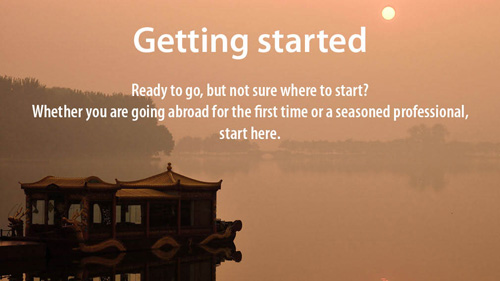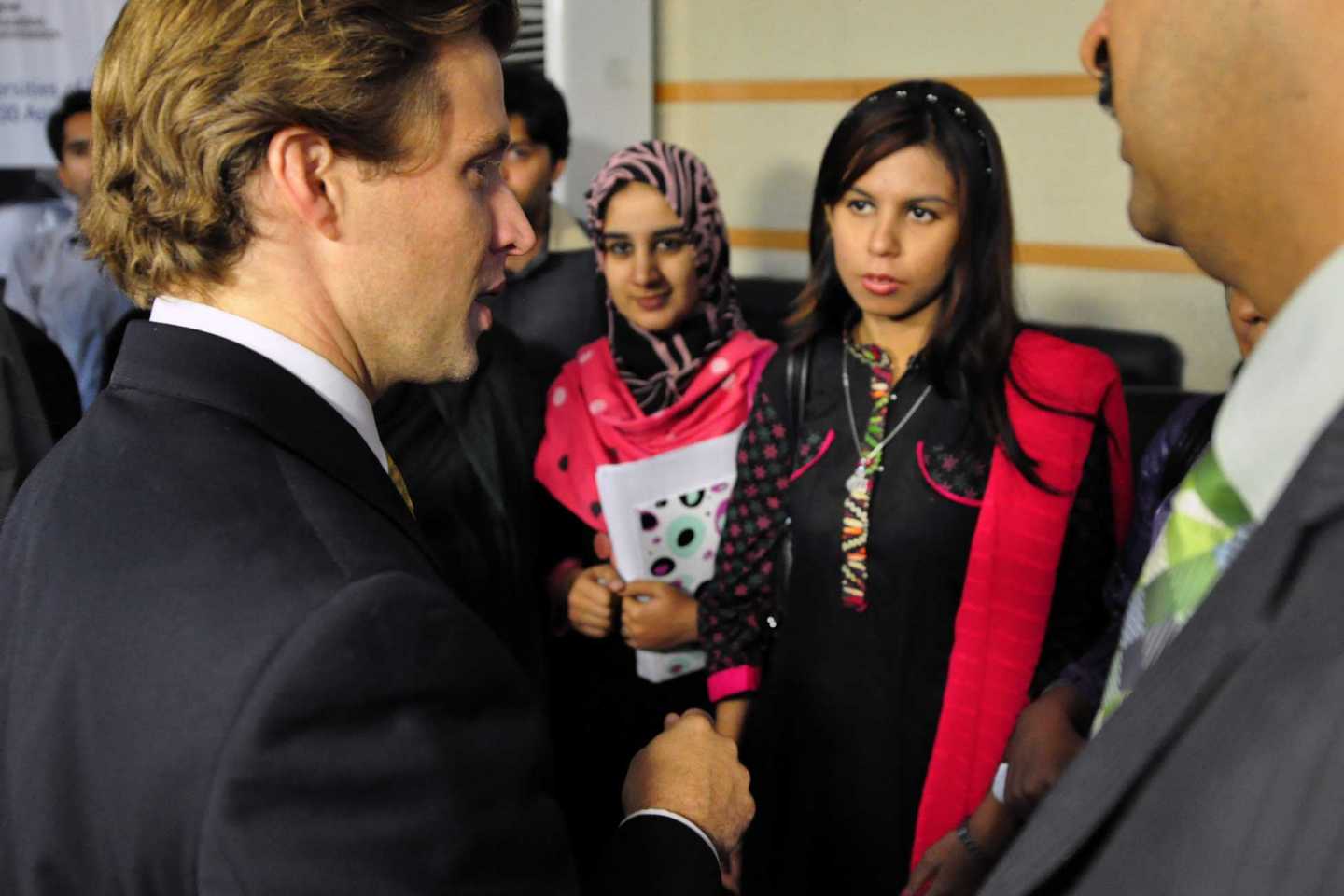Employers in international business can be divided into several types.
Multinational companies
Multinational companies that source or sell products internationally operate in a range of sectors, from technology, to banking to luxury hotels. They recruit new graduates as well as those with various levels of experience, and offer some well-trodden entry paths for individuals starting out in their careers. In some cases, company culture actually dictates a preference for hiring recent graduates (e.g. Proctor and Gamble) as they aim to shape their own distinct corporate culture. Other companies actively recruit more experienced professionals, including those who have started their careers in fields such as management consulting or finance. In Europe, it is common for corporations to offer management trainee or rotational programs; these generally last between 18-24 months, and offer the opportunity to learn about various specializations within each department (for example a human resources rotation would consist of time working with recruitment, training and compensation divisions) often while receiving training and mentorship across international offices.
Multinational companies are some of the world’s top employers, offering generous compensation packages, work-life balance programs and structured mentorship and coaching. While this working environment is definitely not for everyone, it can offer benefits to new graduates just entering the workforce—even if they do not plan to stay long term. One option for business graduates seeking to build an international career is to start at a reputable multinational with rigorous training and work culture. This will give you the opportunity to hone your skills in a structured environment while building credibility and work ethic that will open doors internationally going forward.
Local companies
It is sometimes possible for overseas companies to hire expatriate workers, but entry-level personnel are almost never recruited directly from overseas. The costs of relocation and visa sponsorship for international staff can be high, and in most cases international hires will only be considered if they offer expertise that is needed and cannot be sourced locally.
One possible route to finding a job in an overseas firm, however, is to take advantage of Youth Mobility Agreements, which exist between countries like Canada, Australia, and the UK. In general, these will allow you to obtain a two-year work permit; having a work visa in hand, and travelling overseas to apply for jobs in your target country, can remove the largest barriers for any firm that might consider hiring you. Note that conditions do apply to these mobility agreements, and they differ for each partner country.
Working for a local firm in another country can be a real chance to learn about business culture, operations and expectations in a completely different context. Such regional expertise could be leveraged to help you move into a more senior role, for example working for a company seeking to enter the market in that country, or a multinational that operates there already.
Social enterprises
International businesses with a social mandate often employ staff whose values align with their vision, and who have experience working in service of a social cause. If you are motivated to make a difference in the world, and have business skills to apply, these organizations can offer incredibly exciting opportunities. For example, D.light is a leading global social enterprise that is transforming the way people use and pay for energy, through offering solar-powered solutions for households and businesses around the world. D.light offers a 12-month fellowship with opportunities at its hubs in in Africa, China, South Asia and the United states. For those with at least two years of work experience, The One Acre fund, an award-winning social enterprise that works with small farmers in East Africa, offers a three-year rotational program in the region which develops field operations, logistics and business management skills.
Social enterprises, especially those in start-up stages, often work with interns and contractors to maximize the use of their limited resources. Junior staff and interns may be given the opportunity to take on responsibility much earlier than they would at larger corporations—allowing them to be challenged, take ownership of their projects and gain valuable experience. Since social enterprises do not have profit as their only driver, the earning potential at these organizations can be less than at purely commercial firms. However, they usually offer other rewards: a chance to build experience fast, potentially high job satisfaction, as well as the opportunity to work in a likeminded team for a common cause.
Consultancies
Consultancies in international business offer international opportunities for individuals with particular areas of expertise, or regional knowledge. These firms focus on a range of specializations from business strategy, to digital media, to logistics management. Some large multinational consulting firms (e.g. Accenture), have divisions that specifically target clients in the emerging markets, and offer short-term overseas postings for their staff. Small- to medium-sized consulting firms may hire consultants on an as-needed basis, based on the projects they have bid on successfully. Consultancies may also specialize in certain commercial sectors, such as advising government on transport and infrastructure projects, especially in the case of developing economies. Investment advisory firms in developing countries are also growing in prevalence, to guide foreign investors in the local marketplace. While working as a consultant often requires a specialized degree and skill sets such as knowledge of transport economics and capital markets, any consulting firm that works overseas needs to have a strong base of local knowledge and intercultural communicators.
Non-Governmental Organizations (NGOs)
NGOs, especially those working in economic development, are increasingly hiring individuals with business and strong analytical skills. There are many reasons for this, including a growing trend towards initiatives that promote microfinance, business and entrepreneurship as ways to improve people’s lives. Project management and reporting are also areas where most NGOs need staff, and business skills are valued. Make no mistake about it: internships in large organizations such as The Bill and Melinda Gates Foundation, or KIVA.org can be highly competitive, as the candidate pool includes graduates in international development and other disciplines. Mid-level project management and market development roles may be accessible to candidates with a strong track record in the private sector. Note that the work of most NGOs typically involves a degree of advocacy; as such, individual staff members who fit best tend to have values and beliefs that align with the organization's mandate.
Governments and multilateral institutions
Government and multilateral institutions play key roles as facilitators and regulators of international trade and investment. While these roles used to be reserved for graduates of international relations, politics or economics, governments have started to recruit business graduates for economic officer roles in the international foreign service. People in these jobs support economic and commercial relationships between countries, including providing input into policies, negotiating economic agreements, as well as supporting both local and international companies in navigating opportunities and solving problems in the countries where they do business.
Government jobs with an international business focus are also available in your home country. These include jobs that identify and support companies to become export-ready, as well as those who do desk research in international business issues and coordinate international colleagues to inform domestic policies. Prior experience in the geographies of focus is usually required. Multilateral institutions such as the World Bank, the International Monetary Fund and the World Trade Organization also have business-based roles and internships which focus on global financial trends and trade policy, though these organizations strictly require a master’s degree and prior international experience.
Entrepreneurship
While you are not technically ‘hired’ as an entrepreneur, starting your own business can offer a dynamic and challenging path to an global career. Advances in technology, including collaboration software and platforms such as LinkedIn, have enabled aspiring entrepreneurs to quickly compare suppliers and candidates around the world, and collaborate with remote teams. While any business venture requires clear market research, sound planning, and financial backing, starting a business overseas means that you have additional homework to do to navigate an unfamiliar culture, business customs and political/regulatory context. While the possibilities for new business ventures are boundless, and will continue to evolve with the needs of customers as well as the constraints posed by regulations or competition, some promising global sectors include clean-tech, e-commerce, and social enterprises in areas such as financial inclusion and mobile health.
Add to Favorites


